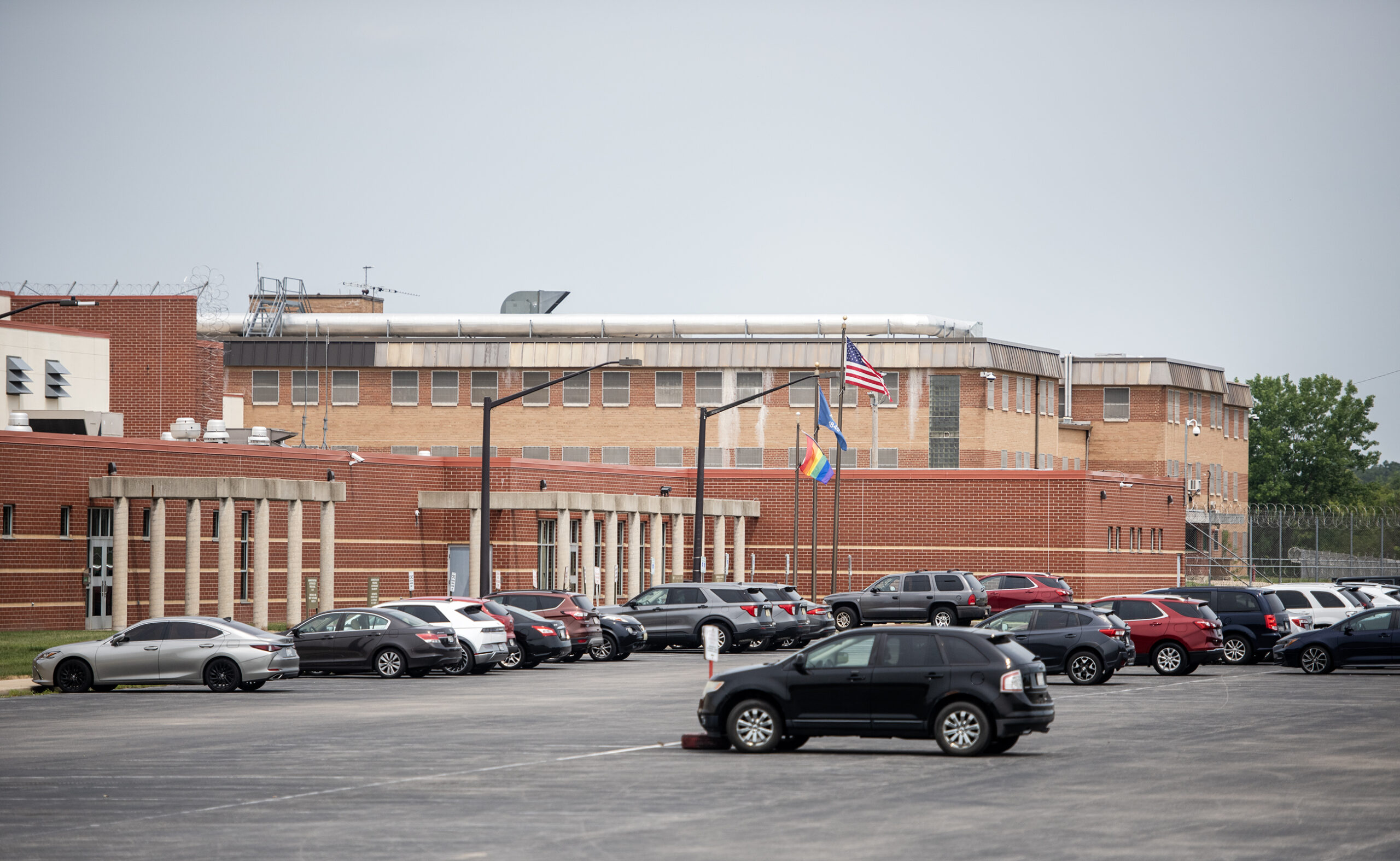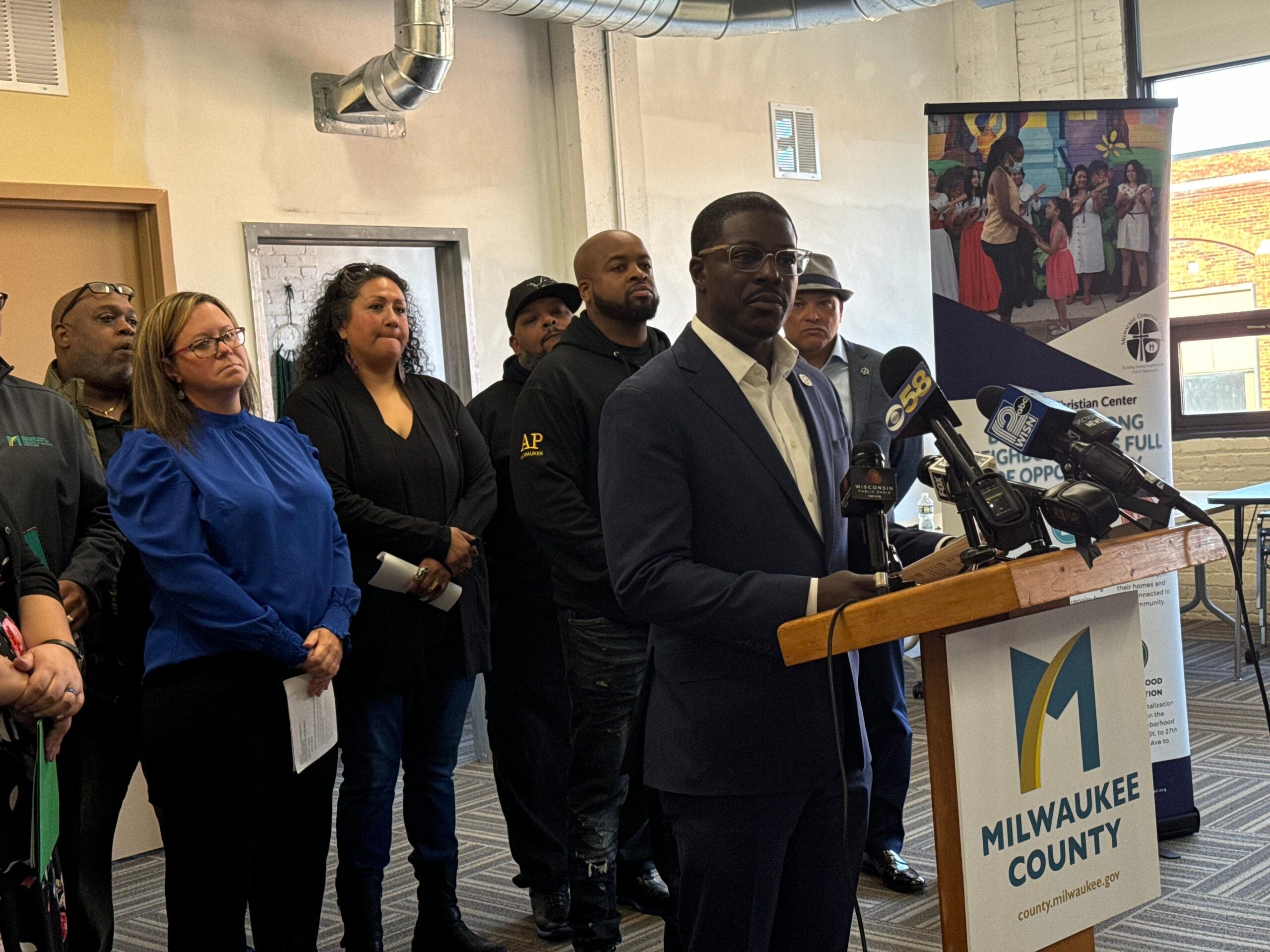Individuals being released from the Milwaukee County House of Corrections could be paired with community members who have had their own experiences with the justice system.
The mentorship is part of a county reentry pilot program local officials are considering to lower recidivism rates in Milwaukee County for young adults leaving the jail.
County Supervisor Sequanna Taylor said barriers to finding housing and a job often cause people to commit another crime. She believes connecting people who are leaving the Milwaukee County House of Corrections with community members who have similar experiences will keep them out of the justice system.
Stay informed on the latest news
Sign up for WPR’s email newsletter.
“Reentering the community is incredibly difficult for individuals who do not have access to necessary support both while incarcerated and as they transition back into life outside a correctional facility,” Taylor said. “There is so much more that we can do to prepare people to successfully come home and make sure that they stay home.”
Even though existing programs are in place to curb recidivism, 17- to 24-year-olds often fall through the cracks, said David Muhammad, deputy director of the Milwaukee County Department of Health and Human Services.
He has been working with the county board to establish the reentry pilot program. The program would expand the county’s Credible Messenger program, launched in May. Muhammad and Taylor believe the pilot program could be successful in reaching younger adults.
Chantell Jewell, superintendent of the Milwaukee County House of Corrections, said it is important that ample resources are dedicated to 17- to 24-year-olds so they don’t fall deeper into the system. But, the program will be beneficial for everyone leaving jail.
“Some people have very strong family support, so they are able to manage, but sometimes even with a strong family, they don’t understand what happens as a result of incarceration,” Jewell said.
Jewell said there is some work done to prepare people for release while they are in jail, but she’s happy to see resources being considered for people once they are out. Especially the mentorship component.
“I think everyone has a sphere of influence and some of those people with lived experience are able to relate to individuals a little differently than people who work in the system,” Jewell said.
The current Credible Messenger program pairs 23 mentors with 68 youth who have been involved in the justice system.
Community members working with adults would be required to participate in training. They’ll work with county case managers to assist with housing, mental health services and support groups.
The facility in Franklin is a low-security detention facility operated by Milwaukee County that houses up to 1,766 people serving sentences of 12 months or less.
The state Department of Corrections has had a successful as recidivism program since 2000, according to the Wisconsin Recidivism Data Dashboard. For the existing recidivism program in Milwaukee County, the jail works with the county Department of Health and Human Services, Employ Milwaukee and the Benedict Center’s Women’s Reentry Program.
The county’s Health Equity, Human Needs, and Strategic Planning Committee approved the reentry initiative Wednesday. The full county board will vote on the proposal Thursday.
If approved Thursday, the Milwaukee County House of Corrections will provide a written report to the Milwaukee County Board in December that includes admission criteria the program, collaboration options with the county Department of Health and Human Services, the county Behavioral Health Division and the Milwaukee County Sheriff’s Office, cost, and a projected timeline to implement the program.
Wisconsin Public Radio, © Copyright 2025, Board of Regents of the University of Wisconsin System and Wisconsin Educational Communications Board.




